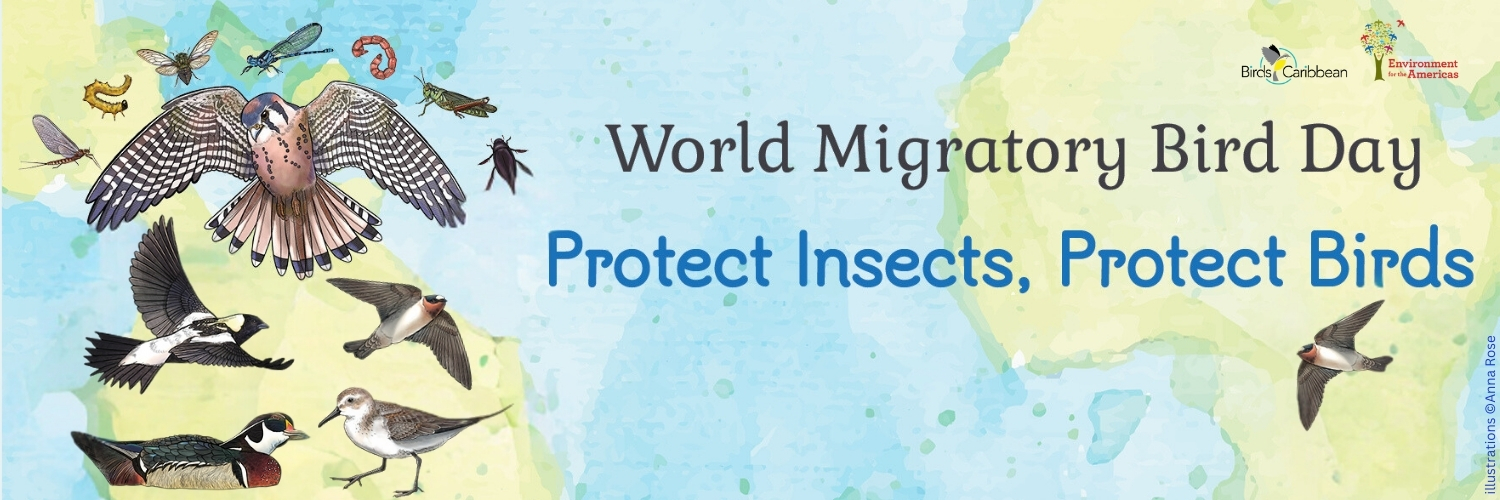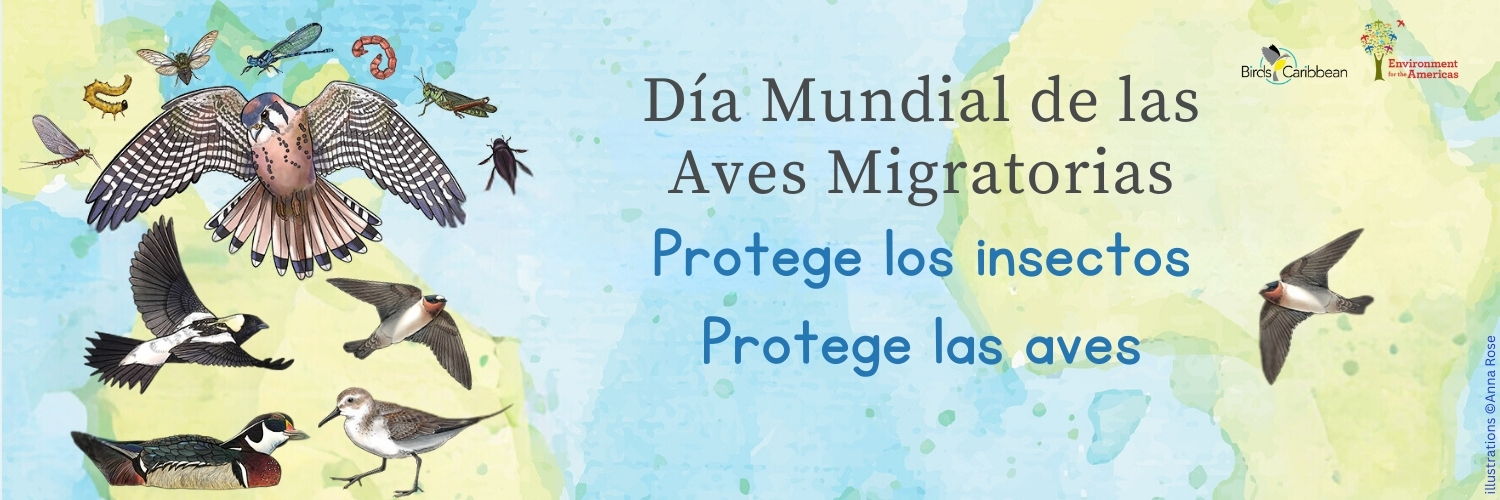World Migratory Bird Day (WMBD)
The long journeys that migratory birds take each year are truly fantastic. These birds, like our endemics and residents, are part of our natural heritage and it is up to us to conserve the habitats they need to feed and rest during winter or their long migrations. We encourage all of you to celebrate WMBD in your own country, as you have celebrated the Caribbean Endemic Bird Festival with great success for many years now. WMBD is officially celebrated on the second Saturday in October in the Caribbean (this year it’s October 12th), but you can celebrate anytime in the fall that is convenient for you.
The theme of the 2024 festival is “Protect Insects, Protect Birds.” highlighting the importance of protecting insects for birds and our environment.
Insects are essential sources of energy for many migratory bird species during their long journeys. The success of these migrations often depends on the timing, as birds rely on peak insect abundance at stopover locations to replenish their energy reserves before continuing their travels.
Insects also play a crucial role in ecosystems that directly benefit people. They pollinate crops, helping to produce a significant portion of the world’s food supply. Without insects, our agriculture, food security, and overall ecosystem health would be severely impacted.
However, insects face significant threats from habitat loss, pesticide use, and light pollution, among others. The decline in insect populations not only impacts ecosystems but also leads to a scarcity of this vital energy-rich food source for migratory birds, resulting in weakened immune systems, reduced reproductive success, and increased mortality rates for both adult birds and their offspring. Together we can take proactive conservation measures to reverse this trend!
In the fall, we will share Migratory Birds of the Day with coloring pages, online puzzles, natural history information, photos, videos, activities for kids, webinars, and more! Follow along on our website and social media (look for BirdsCaribbean on Facebook, Twitter and Instagram) and search for #WorldMigratoryBirdDay #WMBD2024 and #BirdsCaribbean. Thanks to assistance from Environment for the Americas, we have a new poster, kits, and other materials to help you celebrate. Great resources for celebrating WMBD can be found at Environment for the Americas website (home of WMBD in the Americas), at MigratoryBirdDay.org, and also the global website of World Migratory Bird Day.


